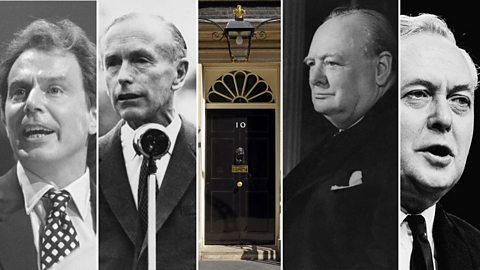A good conversation can leave you feeling energised.
But if you and the person you're talking to don't agree on what you're discussing, things can get tricky pretty quickly.
Alastair Campbell is a former director of communications for Labour and adviser to Tony Blair, who was prime minister from 1997 to 2007. He is a seasoned debater, so we've asked him to give us his top tips on how to convince and persuade or, if all else fails, disagree 'agreeably' with your friends and family when you can't quite see eye to eye.
Here's what he had to say.

Little did I know, when starting The Rest Is Politics with former Cabinet minister Rory Stewart, that it would become the UKās Number 1 podcast.
Two men talking about politics home and abroad, for around an hour each week, the demand growing so that we doubled, then tripled, the weekly output. And when we sold out the 6,000-seater Royal Albert Hall in London for a live event, we discovered that more than a third of our audience was less than half my age. I am 67.
Rory Stewart is a lifelong Conservative; I am lifelong Labour. We have a motto ā ādisagree agreeablyā ā and I think it helps explain the success of the podcast.
 Image source, Jamie Lucas Photography
Image source, Jamie Lucas PhotographyWhat most people see of politics is Parliamentary debate in which MPs shout each other down; TV and radio discussions in which politicians and journalists do the same. But that is not the way most people talk to each other in real life. Thatās my first rule of disagreeing agreeably ā speak like a human being, and above all the human being you happen to be, not some kind of weird imitation of how you imagine politicians speak.
One of the reasons I have written two books on politics for children, one for primary schools, one for teenagers, is that communications and debating skills are useful not just in politics, but in life more generally. So here are my other ādisagree agreeablyā tips.
1. Know your own mind. That means testing your own opinions before you express them with certainty. āWhat do I really think?ā That means reading and researching widely, because the best arguments are the ones rooted in real knowledge and preparation. And I say āwidelyā because it is important to challenge your own opinions and assess those of others you might not agree with.
2. Listening is as important as talking. Sometimes the best opportunities to explain your point will come from someone giving you a counter opinion: "I get where youāre coming from, but let me tell you why I disagree." Or: "No, I think thatās wrong, and hereās why."
And if you really want to hit back, a little āwith respectā at the start of your answer can open the door nicely: "With all due respect, and please donāt take this personally, but I think that is wrong." Even when disagreeing, you can stay polite.
3. Persuade without judgement. This was a brilliant piece of advice, from a pupil called Annabelle, when I was visiting a school en route to a TV debate in Clacton with an audience made up entirely of people who voted Leave in the 2016 Brexit referendum, and I was to be virtually the only Remainer at the event. "Donāt trim your views," said Annabelle. "They wonāt respect you for that. Persuade without judgement."
Her words were front of mind when I told the audience I didnāt blame them for voting as they did, because politicians they trusted gave them reasons to do so. But I did blame those politicians I believe lied to them. The applause that followed me made me drop Annabelle a line to thank her after the event.
 Image source, Jamie Lucas Photography
Image source, Jamie Lucas Photography4. Facts matter, but stories matter more. More than four million children in the UK live in poverty. Thatās a fact. But itās not as powerful as telling the life story of one child, along the way making known he or she is one of those four million. Personal stories donāt always have to be about yourself, but also people whose stories you know, if you can share them
5. A little laughter goes a long, long way. In one of our live shows, I played a TV clip of Rory Stewart when he was floods minister, saying that the flood walls had worked, "but the water went over them." The Albert Hall erupted in laughter. But he took it in good spirit because we have developed a relationship in part built on friendly banter.
6. You can still be friends with people you donāt agree with. James Carville was one of President Bill Clintonās most important advisers ā a Democrat. Mary Matalin worked in a similar capacity for a succession of Republican Presidents. Carville and Matalin are happily married! I am not sure I could ever have married someone with vastly different political views, but itās worth remembering there is more to life than politics!
This article was published in September 2024

Looking for quizzes, amazing stories and fun facts?
Bitesize Topical has it all!

Can you list these 20th Century UK Prime Ministers in order?
Was Stanley Baldwin at Number 10 before Asquith, or Attlee?

āDo I really sound like that?ā Why we cringe at hearing our own voices
Listening to a recording of our own voice can be interesting, to say the least. But why does this happen?

The trees that witnessed history
From the American Civil War battlefields to the signing of the Magna Carta, discover how trees have witnessed key moments of history.
